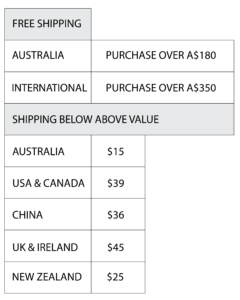Made to Order
FAQs
Who makes my order?
The designer Rioko Tega will cut, construct and finish your garments with the highest attention to detail. Her mission is to create future vintage pieces that will be uniquely yours.
How long will it take to make my order?
Please allow two weeks for your order to be ready to ship.
What adjustments can you make?
When choosing your base size, you can:
– add or reduce length
– add or reduce waist circumference (applicable to trousers and skirts only).
Most Tegarioko designs are oversized for an easy, comfortable fit.
If you are not sure of the adjustments you need, please feel free to message us via the contact
form on this page. We would love to assist.
Can I return my order?
Given the nature of made-to-order products, returns are generally not accepted.
If you are not happy with the product received, please contact us and we will do our best to
find an appropriate solution. Any refund can only be provided in the form of store credit.
Ready-to-ship items, such as our BONIKO organic cotton tabi socks, can be returned within
seven days of purchase, if they are in their original condition. The customer must cover the
cost of return postage.
Can I view and/or try a physical sample of an item?
A personal fitting can be arranged at the Tegarioko Collingwood studio for locally based
clients. Please feel free to contact us with your request for a fitting via the contact form on
this page.
Do you ship worldwide?
Please refer to the chart below for the list of countries to which we currently ship, as well the shipping charges involved. If your country is not listed, please contact us.

Do you have stockists?
Tegarioko does not have stockists, primarily because we prefer to interact directly with our
clients. This allows us to provide each of you with a personalised experience.
Additionally, working with stockists can double the retail price of our garments. It is also
common practice for retailers to ask for our prices to match theirs. This type of arrangement
can lead labels to compromise on both fabric quality and construction choices in order to achieve a higher margin – an approach that does not sit comfortably with our design principles.



